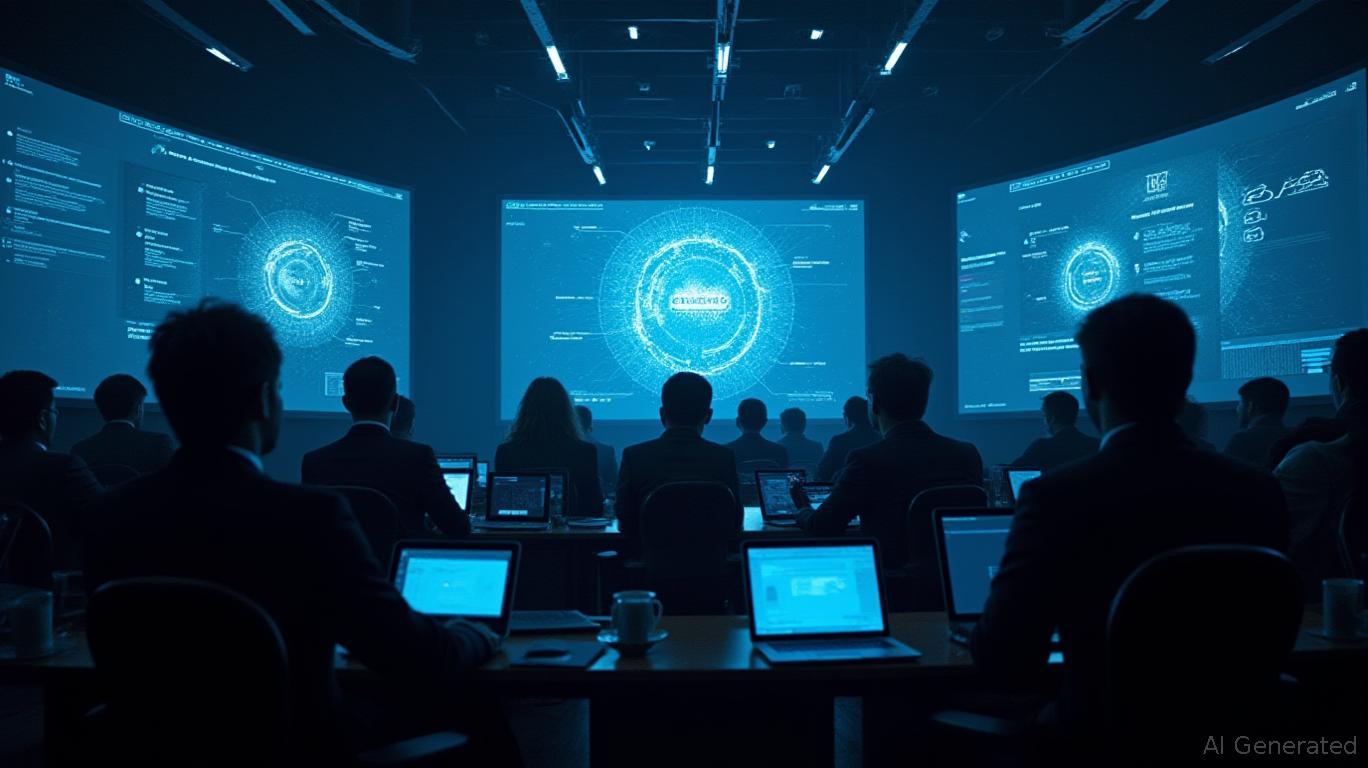Regulators Rush to Shape the Future of AI as Global Tech Competition Intensifies
- Global AI regulation evolves with EU leading via risk-based AI Act, US shifting focus to innovation under Trump, and China shaping governance strategies. - EU's GPAI Code of Practice (effective Aug 2025) emphasizes alignment with values, proportionality, and future-proofing through stakeholder feedback. - US revokes Biden's AI safety order, prioritizing industry growth via new executive actions and an AI Action Plan led by tech-linked officials. - UK-Qatar AI research collaboration and Singapore-Hong Kon
The regulatory environment for artificial intelligence (AI) is changing quickly around the world, with various regions adopting unique methods to oversee the growth and use of AI. As AI becomes increasingly essential in sectors such as finance, communications, and government, regulatory systems are being updated to strike a balance between encouraging innovation and managing risks. According to a 2025 strategic intelligence report by ResearchAndMarkets.com, while the European Union (EU) is at the forefront of AI regulation, both the United States and China are also instrumental in setting the direction for global AI governance.
The EU has solidified its reputation as a leader in regulatory innovation through the introduction of the AI Act, which takes a risk-based approach to supervising AI. A central aspect of this legislation is the General-Purpose AI (GPAI) Code of Practice, currently being finalized after several rounds of stakeholder consultation. The Code prioritizes EU principles, proportional regulation, and adaptability for future changes. The Act is slated for full implementation by August 2025, while the finalized Code is anticipated in May 2025. This forward momentum has established the EU as a benchmark for international AI governance, potentially shaping how other regions regulate AI.
In the US, the regulatory approach has experienced a notable shift following the withdrawal of the Biden administration’s AI Executive Order. On January 20, 2025, President Donald Trump revoked the prior directive, which had emphasized safe and ethical AI advancement. The new administration has pivoted towards strengthening American leadership in AI, issuing a new executive order that aims to eliminate obstacles to AI innovation and reinforce national security. Plans for an AI Action Plan have also been announced, led by individuals closely connected to the technology sector, sparking concerns about possible conflicts of interest. Concurrently, the US Copyright Office is clarifying the legal perspective on AI-created works, affirming the necessity of human involvement for copyright eligibility.
Internationally, nations are increasingly participating in global initiatives to encourage responsible AI practices. In December 2024, the UK and Qatar announced a joint AI research project, supported by the UK’s Gulf Strategy Fund. The effort, managed by Queen Mary University of London and Hamad bin Khalifa University, focuses on developing sound AI governance through research on ethical standards, policy recommendations, and international cooperation. Meanwhile, Singapore and Hong Kong have published comprehensive guidelines to address AI-related risks in the financial industry, highlighting transparency, human oversight, and solid cybersecurity protocols. These efforts demonstrate a worldwide movement toward regulating AI in a manner that protects the public while nurturing technological progress.
Within the public sector, states such as Virginia are investigating the use of agentic AI to optimize regulatory frameworks. In January 2025, Governor Glenn Youngkin signed an executive order permitting the deployment of agentic AI to evaluate and decrease regulatory complexity. This initiative is part of a larger push for greater efficiency, which has already achieved a 26.8% reduction in regulatory measures since 2022. By leveraging AI to pinpoint redundancies and inconsistencies in current regulations, Virginia seeks to update its administrative processes while ensuring openness and responsibility.
The shifting landscape of AI regulation presents significant hurdles. The International AI Safety Report, released by the UK’s Department for Science, Innovation and Technology in January 2025, stresses the importance of a shared scientific perspective on AI-related dangers. Produced with contributions from over 100 global experts, the report calls for trustworthy system design, rigorous risk evaluation, and ongoing research into AI’s capabilities. These insights are expected to guide conversations at the upcoming AI Action Summit in Paris and will be crucial for companies navigating the regulatory complexities of AI adoption.
In conclusion, the worldwide AI regulatory scene is characterized by a dynamic balance between technological advancement, managing risks, and strategic geopolitical interests. The EU remains a frontrunner in establishing regulatory standards, while the US and China also have significant influence over the future of AI regulation. As AI becomes more entrenched in both public and private domains, the necessity for balanced, evidence-driven regulation grows ever more urgent. Governments, businesses, and international organizations must work together to ensure AI progress reflects societal values and serves global security needs.

Disclaimer: The content of this article solely reflects the author's opinion and does not represent the platform in any capacity. This article is not intended to serve as a reference for making investment decisions.
You may also like
CandyBomb x 2Z: Trade to share 5,175,000 2Z!
[Initial Listing] Bitget Will List DoubleZero (2Z) in the Innovation and Public Chain Zone
Bitget announcement on the removal of 1 trading pairs under spot bot trading on October 2, 2025
Onchain Challenge (Phase 21) — Trade and share 120,000 BGB in airdrops
